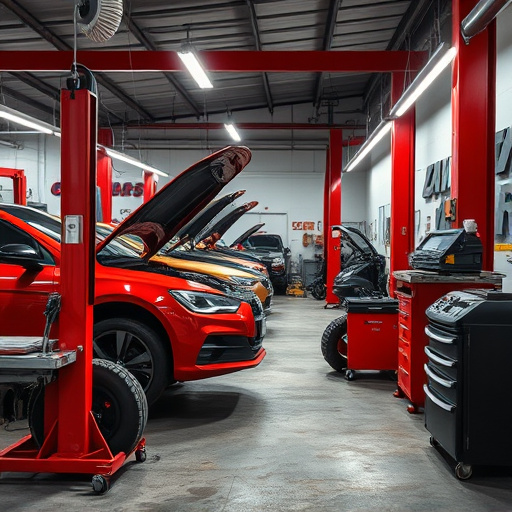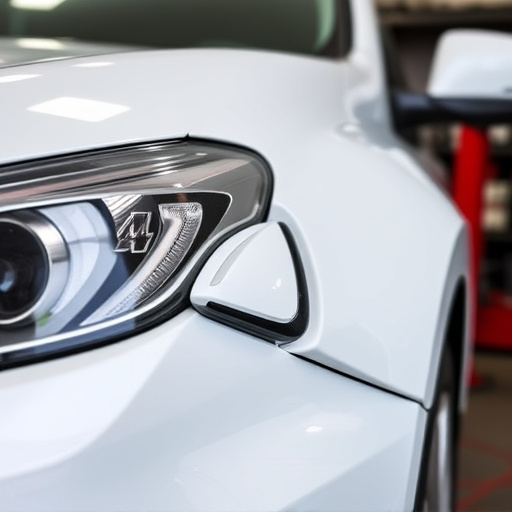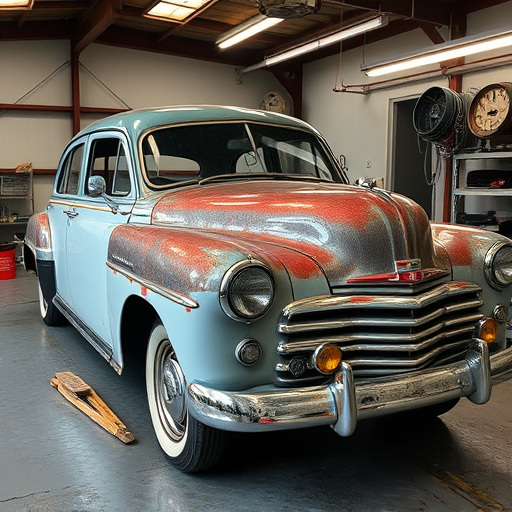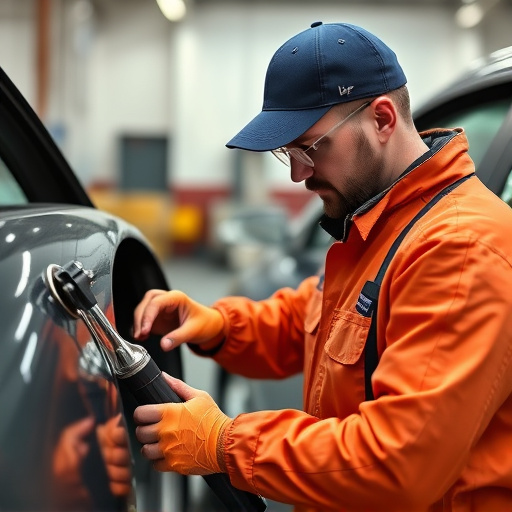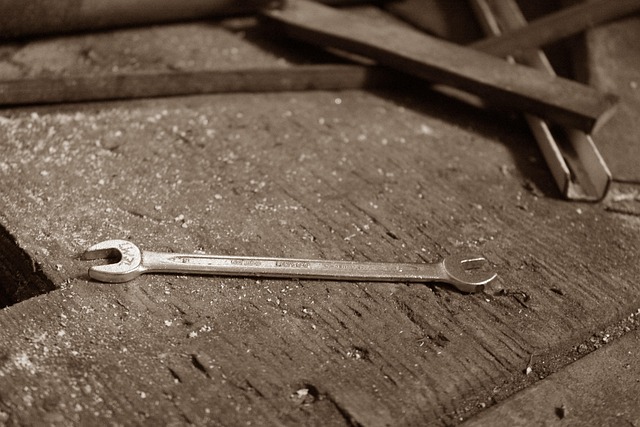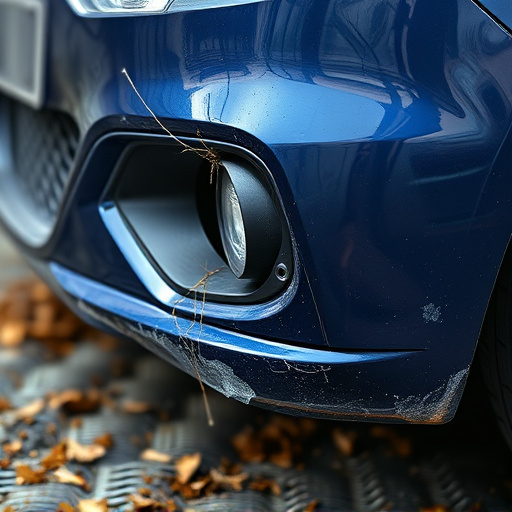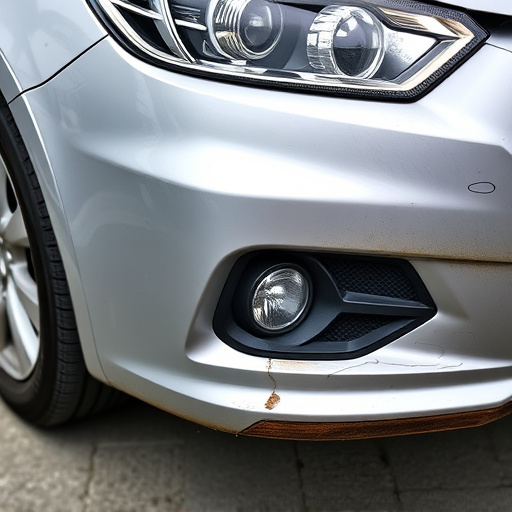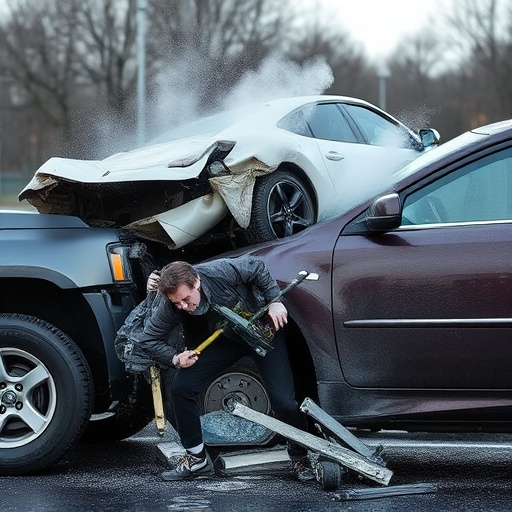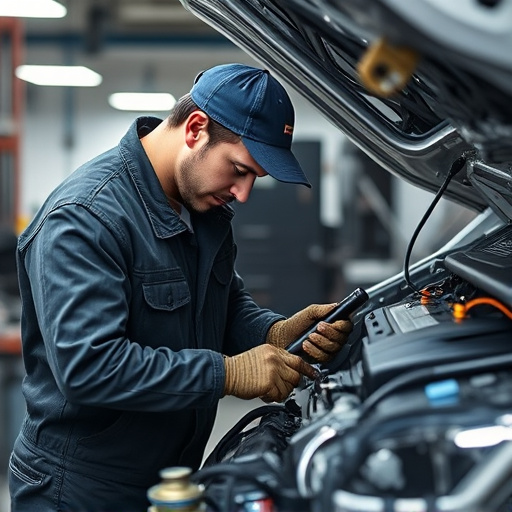The glass replacement certification landscape has evolved with advancements in automotive technology, highlighting the balance between human expertise and automated systems. This certification is key for professionals to ensure vehicle aesthetics and structural integrity through precise damage assessment, glass selection, and installation. Despite the significant time investment, it enhances career prospects, increases earning potential, and fosters a diverse community of skilled artisans challenging traditional monopolies in skilled trades. Modern training methods like workshops, online courses, and apprenticeships offer practical experience and industry knowledge, meeting specialized demands in frame straightening and car collision repair.
In an era of rapid technological advancement, questioning the relevance of traditional certifications is paramount. Yet, for skilled glass technicians, the Glass Replacement Certification remains a topic of interest. This article delves into the evolving landscape of glass industry standards, exploring whether this certification still holds value. We weigh the benefits and drawbacks, considering time investment versus professional credibility, while also uncovering modern alternatives that shape the future of glass workmanship.
- Glass Replacement Certification: Remaining Relevant in a Changing Industry
- Benefits and Drawbacks: Weighing Time Investment vs. Professional Credibility
- Exploring Alternatives: Modern Paths for Skilled Glass Technicians
Glass Replacement Certification: Remaining Relevant in a Changing Industry

The glass replacement certification landscape has evolved significantly over the years, reflecting the dynamic nature of the automotive industry as a whole. While digital advancements and new materials have introduced challenges, they’ve also opened doors for specialized skills to adapt and remain relevant. Despite the advent of sophisticated technologies in collision repair, including automated glass cutting and bonding systems, human expertise is still indispensable.
Glass replacement certification remains valuable due to its focus on nuanced techniques, safety protocols, and quality control measures that ensure vehicle aesthetics and structural integrity. Professionals with these credentials can accurately assess damage, from minor chips and cracks to more extensive hail damage repair or Mercedes Benz collision repair scenarios. They possess the knowledge to select appropriate glass types, apply specialized adhesives, and perform precise installations, ensuring longevity and optimal performance for various vehicles, including luxury brands known for their intricate design and safety features.
Benefits and Drawbacks: Weighing Time Investment vs. Professional Credibility

The glass replacement certification remains a valuable asset for several reasons, particularly in today’s competitive market where specialized skills are highly sought after. Obtaining such a certification can significantly boost your professional credibility and open doors to diverse opportunities, from classic car restoration to collision repair centers. It ensures that you meet the highest standards of quality and safety, which is crucial when dealing with delicate automotive glass. This qualification demonstrates expertise in handling various types of glass, including its proper installation, repair, and replacement techniques.
However, the time investment required to obtain this certification can be a significant drawback for those already established in their careers or with limited spare time. The process involves rigorous training, practical sessions, and examinations that demand dedication and effort. Some individuals might consider it a hassle, especially when compared to other shorter courses or on-the-job training. Yet, for those aspiring to excel in the field of automotive glass repair, the long-term benefits of enhanced career prospects and increased earning potential could outweigh the initial time commitment.
Exploring Alternatives: Modern Paths for Skilled Glass Technicians

In today’s evolving landscape of skilled trades, glass replacement certification once held a monopoly on credibility for technicians. However, with advancements in training methods and the emergence of alternative pathways, the value of traditional certifications is being reevaluated. Many aspiring glass specialists are now exploring modern routes to hone their skills, such as immersive workshops, online courses, and apprenticeships within automotive collision repair centers. These alternative paths offer hands-on experience, industry insights, and opportunities for networking—all crucial components for success in the field.
Gone are the days when a glass replacement certification was the sole ticket to a lucrative career. With frame straightening and car collision repair becoming increasingly specialized, technicians are recognizing the benefits of diversifying their skillsets. This shift has opened doors for those who wish to excel without solely relying on traditional certifications, fostering a vibrant community of skilled artisans ready to meet the ever-changing demands of the industry.
In conclusion, while traditional glass replacement certification remains a valuable credential, the evolving nature of the industry demands professionals adapt and explore alternative paths. The benefits of certification, such as enhanced credibility and skill validation, are undeniable. However, with the rapid advancements in technology and innovative practices, it’s essential for technicians to stay abreast of modern trends. By considering newer training programs and specialized courses, skilled glass technicians can future-proof their careers, ensuring they remain competitive in a dynamic market. This balance between traditional certification and continuous learning is key to navigating the ever-changing landscape of glass replacement services.
